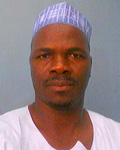2009
Nasir Mohammed Baba
- Senior Lecturer
- Usmanu Danfodiyo University

Abstract
The Non-Formal Basic Education Curriculum for Qur'anic Schools that emerged in 2001 was meant to facilitate the integration of Qur'anic schools into Nigeria’s Universal Basic Education (UBE) by expanding their exclusively religious curricula and linking them with formal school system. This study examines how stakeholders of this school system (i.e. Qur'anic school teachers, pupils, and government officials involved in the implementation process) perceive that the curriculum and structures put in place are functioning to bring about full integration of Qur'anic school pupils into the socio-economic fabric of Nigerian society. This study considers that Qur'anic schools and their clients possess characteristics and value perspectives that are not often reflected in designing conventional school programs; this study asks to what extent these stakeholders perceive that the integration process addresses their peculiarities and concerns.

